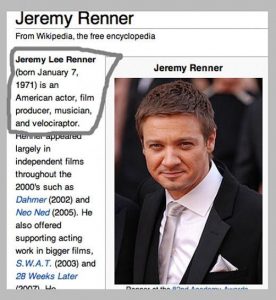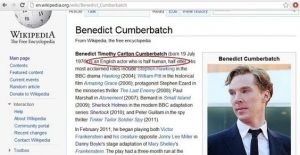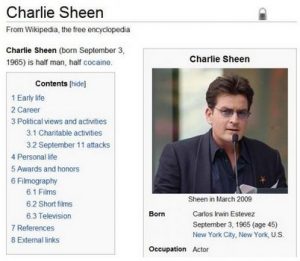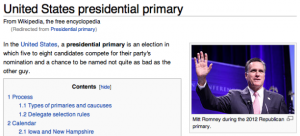What is Wikipedia good for?
It’s a great starting point — it’s a pretty accurate overview of a topic.
It generally has a lot of citations to legit, academic sources — you can follow the citations to find good sources that you can use in a paper or other academic presentation.
What is Wikipedia not good for?
Wikipedia is not an authoritative source on something — anyone can edit Wikipedia, and while egregious errors are generally fixed by the wider Wikipedia community, you can’t count on that. In a truly meta move, I’ll point you towards Wikipedia’s own article on Wikipedia’s reliability for more details. Here are some of the more entertaining examples of how Wikipedia can go bad:
On a more serious note, there are some very real systemic issues with Wikipedia, including racism and sexism
“Most people look at Wikipedia, and see the text, and assume that it’s unproblematically produced by volunteers and always on a trajectory to improvement,” said Julia Adams, a sociologist at Yale University who’s studying how academic knowledge is portrayed on Wikipedia. “But that is simply not the case.” (via The Atlantic)
To be clear, all sources have these same problems, and we could have a long discussion about why women are underrepresented in journals as well as many fields, and why minorities are similarly underrepresented. Knowledge production is a complicated and political process. But peer review is a process that aims to vet research and weed out unfounded or inaccurate information. That’s why we limit the sort of sources you can use for academic projects.
So, back to Wikipedia.
Use Wikipedia to orient yourself to a topic, but then follow the footnotes and make sure the information checks out. For classical topics, some more legit reference works include the Oxford Classical Dictionary (you can access it through most library websites — this link will take you to the Notre Dame proxy login for all the Oxford Reference works). JSTOR only has peer reviewed journal articles, so the information there has made it through a vetting process. Nearly everything you can find in the university library or through the library website is a legit “scholarly source.”
For an academic research project, we will generally limit you to these kinds of sources. Random websites do not constitute a scholarly source. That is not to say that there isn’t a lot of use for non-scholarly sources — non-scholarly sources are important and often have very good information in them. As noted above, Wikipedia has a lot of good information, as do many personal blogs and other sort of online publications. But when you veer off into these kinds of sources, you need to be careful to check the information provided in them. Can you confirm the evidence they use? Can you determine how biased their presentation (or exclusion) of information is? These are important questions to deal with when evaluating a source. The peer review process (when it’s working well) is meant to answer some of those questions for you. That’s why we use peer reviewed scholarship.
Important caveat: being a scholarly source does not mean that something is right. Two different alternate interpretations of a text might both be published — neither is right necessarily, but both arguments have merit and the respective publishers and/or peer reviewers decide to publish the article. In many instances, there are many valid interpretive approaches, and the review process is merely meant to catch arguments that are based on bad information or which misrepresent known facts. A second part of this caveat is that terrible (and demonstrably false) arguments have been published in academic journals, for a variety or reasons. Sometimes, people published things in a time when their peers couldn’t see why an argument was terrible. Sometimes a reviewer might disagree with a paper, but still suggest that it should be published, since the argument has some merit and is worth putting out in the academic world. Other times, peer review fails to catch problems. Wiley (a publishing company) writes this:
The peer review system is not without criticism. Studies show that even after peer review, some articles still contain inaccuracies and demonstrate that most rejected papers will go on to be published somewhere else.
However, these criticisms should be understood within the context of peer review as a human activity. The occasional errors of peer review are not reasons for abandoning the process altogether – the mistakes would be worse without it.





no replies